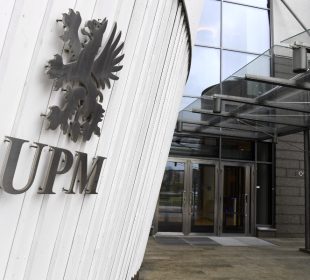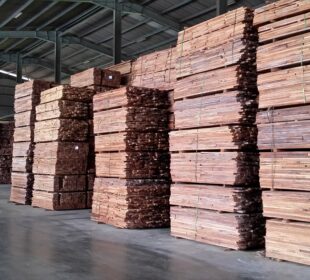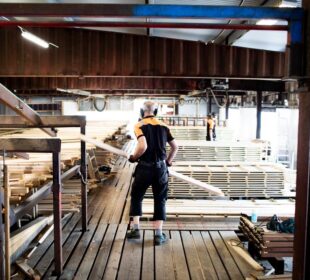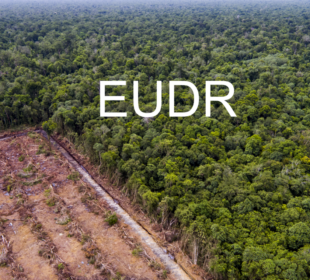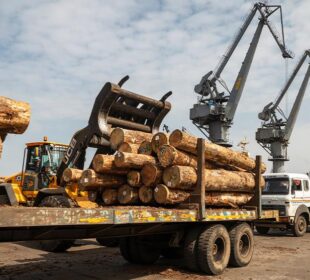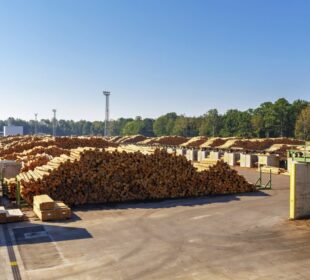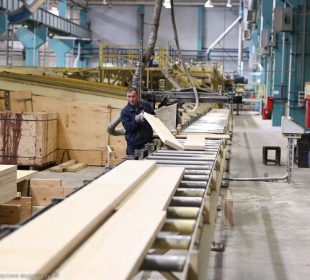The potential value of FLEGT licensing is partly dependent on the extent to which EUTR is being implemented consistently across the EU. This is a question considered in a new report issued by ClientEarth, a UK based NGO specialising in analysis of environmental law.
In the report, ClientEarth provide their assessment of whether the enforcement regimes, which under EUTR are required to be implemented by the individual EU member countries, are “effective, proportionate and dissuasive” according to the law.
The report highlights that although the EUTR was first introduced in March 2013, some EU member countries delayed introduction of a national enforcement regime for some time after that date, although nearly all had done so by the end of 2016.
ClientEarth show that penalties for EUTR infringements vary widely across the EU. Certain Member States (such as Austria, Poland, Romania and Bulgaria) have chosen a penalty regime relying mainly on administrative penalties; others (such as Denmark and the Netherlands) rely mainly on criminal penalties for key EUTR obligations. Some Member States (such as Belgium, Finland, France, Germany and Italy) have adopted a combination of the two systems.
EUTR penalties include notices of remedial actions, seizure of timber, suspensions of authorisations to trade, fines and imprisonment. ClientEarth conclude that competent authorities and Member State courts have been more actively enforcing the EUTR since 2016 compared to the years 2013 to 2015 when almost no penalties had been imposed.
ClientEarth summarise all the EUTR actions that have been reported publicly to date referencing the two UK cases mentioned earlier together with two cases in the Netherlands, two cases in Sweden, and one in Germany.
In the Netherlands, a fine of €1,800 per cubic metre of timber was imposed on a company for a failure to gather information tracing back the entire supply chain of imported sawn timber deemed to be risky from Cameroon.
In another case, a preventive measure was ordered against two Dutch importers of Burmese teak, imposing a fine of €20,000 per cubic metre for each teak shipment placed on the market in breach of the EUTR.
In Sweden, the cases so far have all involved prosecutions for a failure to undertake appropriate due diligence in imports of Myanmar teak.
One company was fined SEK 17,000 (approximately €1,700), another the much larger amount of SEK 800,000 (approximately €79,500) due to a failure to implement measures stipulated in an earlier injunction.
In addition to these cases which led to fines, in 2017 several other Swedish companies were prohibited under EUTR from importing any products containing Burmese teak.
In Germany, an administrative court confirmed in 2017 a decision by the competent authority taken in 2013 to confiscate timber imported from the DR Congo due to irregular documentation. The timber will be auctioned and the money from the auction allocated to the federal budget.
While these few cases have been brought in a limited number of Member States, according to ClientEarth, 'soft' approaches involving no punitive action and a mainly educative purpose still seem to be the preferred enforcement option in many Member States. Such measures include advice letters and warnings, as well as injunctions and notices of remedial action without noncompliance penalties.
Based on this analysis of the cases brought date, the text of laws introduced at national level, publicly available information on regulatory checks and sanctions regimes, and interviews with several competent authorities, ClientEarth conclude that “EUTR penalties rarely seem enforced to the 'effective, proportionate and dissuasive' legal standard, even in Member States where a positive trend in EUTR enforcement is noticeable.”
Comment on ClientEarth assessment of EUTR
The ClientEarth study has limitations. The conclusions are based on a technical analysis of sanctions regimes - considering, for example, whether the costs of sanctions are likely to significantly exceed the costs of implementing EUTR due diligence measures and therefore to provide an effective deterrent.
There is no actual appraisal of whether the national differences in sanctions regimes is leading to significant failures in enforcement or other negative impacts, such as diversion of illicit trade through countries with weaker enforcement regimes.
It is notable that in none of the cases cited was it ever proved that the wood was from an illegal source - there is no obligation under EUTR on the EU authorities to provide such proof - the prosecutions were all due to the failure on the part of the importer to demonstrate compliance to the due diligence steps required in EUTR.
The fact that these prosecutions were brought and led to significant sanctions, even without evidence of illegality at source, suggests that the law has teeth and places a significant lever to encourage more far-reaching due diligence measures in the hands of the EU authorities.
It’s the kind of regulatory power that needs to be used wisely to avoid unintended consequences, such as the creation of technical barriers to trade, feeding of protectionist instincts and discrimination against smaller operators.
ClientEarth acknowledge that their conclusions are based on inadequate information, noting that there is relatively little publicly available information about the number of penalties that have been applied since the EUTR has been in force. The EC has already indicated an intent to improve transparency on this issue and much more information is expected to be available later in the year.
ClientEarth is also critical of what it refers to as ‘soft’ approaches, arguing that they do not provide an effective deterrent to timber products from placing timber at risk of being illegal on the EU market.
This is one interpretation, but in practice EUTR is a complex and innovative law for which most national authorities have had to acquire new knowledge and skills, often from the private operators they are required to regulate, many of which were implementing responsible procurement policies for years even before EUTR was introduced.
Regulating the purchasing decisions throughout 28 Member States of a fragmented industry with nearly half a million enterprises, one in five of all manufacturing enterprises in the region, is unprecedented. In the early years of implementing EUTR, there has been some confusion and ambiguity over the exact measures required by individual operators to demonstrate conformance.
Communicating to timber operators, often small traders with only limited access to legal advice, that they cannot accept either FSC certificates or government documents at face value as evidence of a “non-negligible risk of illegal harvest” takes time and effort.
It is challenging to explain to operators that it is their responsibility to identify which products are “nonnegligible risk”, particularly when the EC and other regulators cannot advise on the relative risks associated with different supply countries and product groups. In such a situation it would be unjust to rush to prosecution – and runs the risk of discrediting the legislation, particularly amongst those operators being regulated.
The success of the EUTR to date has been built to a significant extent on the active support of the private sector within the EU. This support would quickly evaporate if a perception arose that it was just being used as a rod to beat the industry.
A lengthy period of “soft” regulation seems most appropriate, at least until such time as guidelines and supporting information sources have been properly developed and communicated and the authorities are sufficiently competent to accurately interpret and enforce the law. However, there may be a distinction between certain member states using “soft” measures as part of a concerted effort to evolve an effective, efficient and equitable regulatory program, and others that may be hiding behind these measures to avoid more meaningful, and potentially costly, action.
If the latter attitude is widespread it could have the negative consequences mentioned by ClientEarth; an unequal playing field for trade in the EU, undermining the efforts of those operators that are conscientiously implementing due diligence procedures, undermining demand for FLEGT licensed timber, and encouraging diversion of illicit trade through less regulated countries.
So far, the information gathered by ClientEarth is not sufficient to judge the effectiveness of EUTR and their conclusion that the law does not provide a reliable deterrent to trading illegally harvested wood seems premature.
A clearer picture will emerge only when the EU publishes more comprehensive information on the regulatory measures and sanctions introduced at national level in the EU and with more detailed analysis of actual trade flow trends and the compliance steps being taken by operators across the EU.


